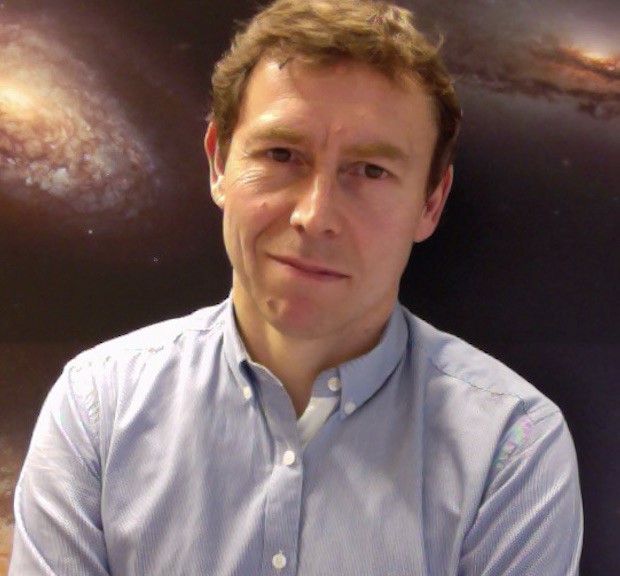Prof. Stephen Smartt (Queen's University Belfast)
Time domain sky surveys, explosive transients and multi-messenger astronomy
Wide-field optical sky surveys are discovering a remarkable diversity in how stars merge, collapse and explode.There is enormous potential in combining electromagnetic radiation with gravitational waves and neutrinos. The discovery of an electromagnetic counterpart to a pair of merging neutron stars showed that gravitational waves produce transients that emit photons from gamma rays to the radio. The UV to near-infraed emission showed that high velocity, low mass material was ejected and powered by the radioactive decay of heavy r-process elements. I will highlight the future potential of all sky surveys and LSST in the coming decade.
Schedule
13:30 - 14:30 Thursday 4 July 2019, Faraday Lecture Theatre
About the speaker
 Stephen Smartt is professor of astrophysics at Queen's University Belfast. He has led searches for the electromagnetic counterparts of gravitational wave sources and is chair of the governing council of ENGRAVE. He is the UK's project scientist for LSST and leads the development of the Lasair broker to serve LSST transients to the community. He was recently awarded the RAS George Darwin lecture (2017) and the Royal Irish Academy Gold Medal in the Physical and Mathematical Sciences (2018).
Stephen Smartt is professor of astrophysics at Queen's University Belfast. He has led searches for the electromagnetic counterparts of gravitational wave sources and is chair of the governing council of ENGRAVE. He is the UK's project scientist for LSST and leads the development of the Lasair broker to serve LSST transients to the community. He was recently awarded the RAS George Darwin lecture (2017) and the Royal Irish Academy Gold Medal in the Physical and Mathematical Sciences (2018).


